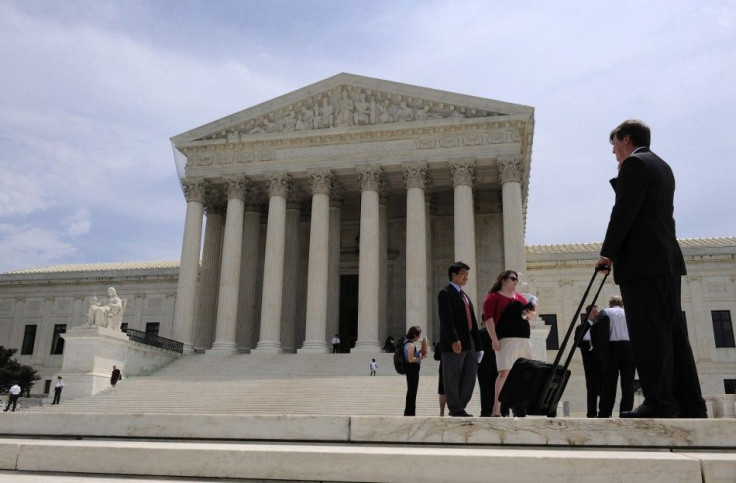Citizens United, Two Years Later: Legal Mind Behind Landmark Decision

James Bopp, a Terre Haute, Ind., attorney had been leading the charge against campaign finance regulation. His work on behalf of a conservative organization called Citizens United culminated in a 2010 U.S. Supreme Court decision that opened the door for corporations and unions to make unlimited contributions to Super PACs, which have dumped millions of dollars worth of advertisements this campaign season.
Saturday marked the two-year anniversary of the landmark Supreme Court decision that has drastically altered the 2012 elections. Bopp spoke with the International Business Times Monday to discuss his critics' biggest misconceptions about the decision, Super PAC ads and why more money in politics is good for the public. Here is the edited interview.
How do you see Citizens United fitting into the history of campaign finance cases before the U.S. Supreme Court?
James Bopp: Citizens United has overturned one of the primary justifications for campaign finance and that is, you can discriminate amongst speakers and specifically prohibit corporations and labor unions from participating in our process. They have overturned that and it has been the principle support for campaign restrictions.
How would you describe this presidential election season in the age of Citizens United?
JB: The most important new feature is the rise of Super PACs, which Citizens United contributed to, but did not actually create... What Citizens United added to the equation was corporate and labor union contributions to Super PACs.
Citizens United only allows corporations to actually say vote for, vote against a candidate, which they were prohibited to do prior to that decision. They had, for many decades, been doing issue advocacy. The [campaign finance] reformers had argued that issue advocacy had as much an effect on an election as express advocacy would. In terms of practical effect, it's pretty modest.
When you add Citizens United to the advent of Super PACs, I think you do have a more substantial impact... The substantial impact is that Super PACs have equalled and exceeded candidate spending.
What do you make of efforts to overturn the Citizens United decision through constitutional amendment?
JB: There's no chance of that whatsoever. I think we've kind of come to the end of the road of efforts by people to defy the First Amendment and to regulate campaigns in ways that the First Amendment prohibits.
It seems to me that the best course at this point is to make candidates more relevant to their own elections by having them repeal these absurdly low contribution limits.
Right now, in a federal election, the maximum contribution is $2,500. The result of this is that there are many contributors who max out and still want to spend more to participate. In order to do that, they can't give it to a candidate, so they have to find some other vehicle and this is why we have a lot of independent spending. If contributions were raised, there would be a lot more money flowing to candidates and they would be much more relevant.
What do you think is the biggest misconception about the Supreme Court's ruling?
JB: Probably the most hilarious [misconception] is, they keep saying the court held that corporations are persons. In fact, the court held the opposite. Corporations aren't persons but they're still protected by the First Amendment because the First Amendment protects speech regardless of whether you're a person or not.
Saying that the court has held that money is speech is also another big lie about the Supreme Court. They have never held that money is speech. What they held is, if you restrict money spent on speech, you're restricting speech.
If you said to The New York Times, you can publish all you want, but we're only going to let you spend a thousand dollars to communicate, to distribute your newspaper everyone would understand that that would be a limit on speech.
Do you think there have been any unintended consequences since the decision?
JB: No. Fortunately, we're enjoying more speech and that's a good thing since the people are woefully uninformed about politics. They don't even know the names of their member of Congress, they don't know who their senators are or even the vice president of the United States. More money spent on campaigns will mean more information and more informed voting.
What about Super PAC ads that critics and independent fact-checkers say are false or misleading?
JB: That's the age old complaint about political spending. When people don't tell the truth in their ads, they're making a big mistake because people react against ads that are not truthful and you intend to hurt yourself. Of course, the other part of it is, people try to defend themselves against truthful advertisement by simply calling them lies.
Citizens United has been the basis for legal challenges to existing federal regulations on political spending.
JB: There are still hundreds of pages of campaign finance regulations and many of them are unconstitutional. But it'll take time to knock them down.
--
© Copyright IBTimes 2024. All rights reserved.





















